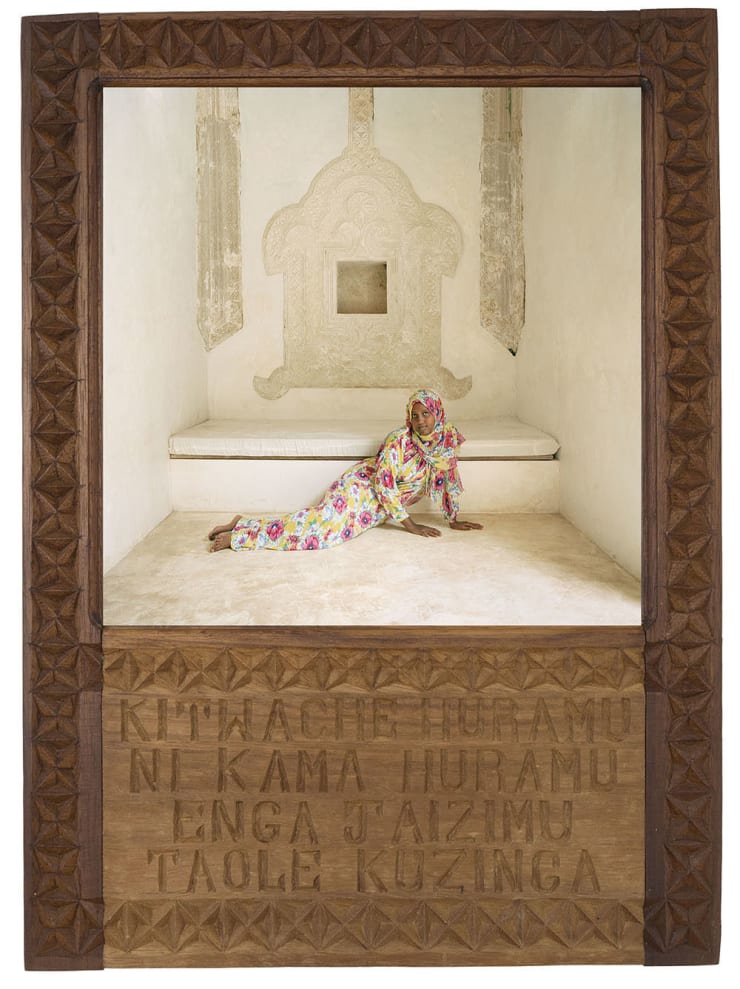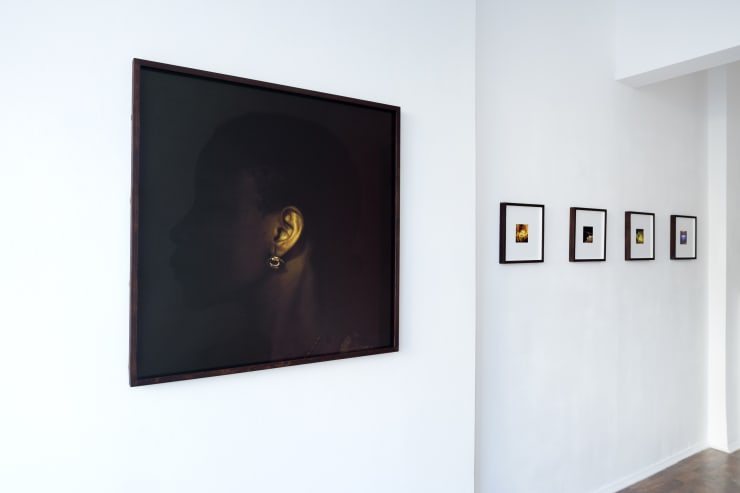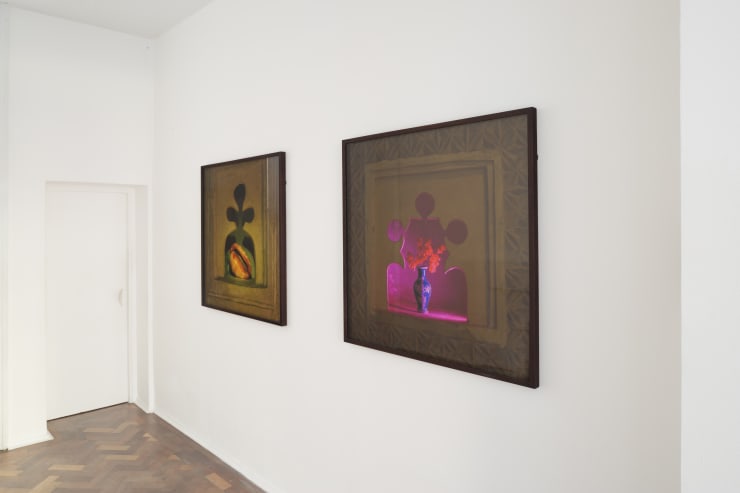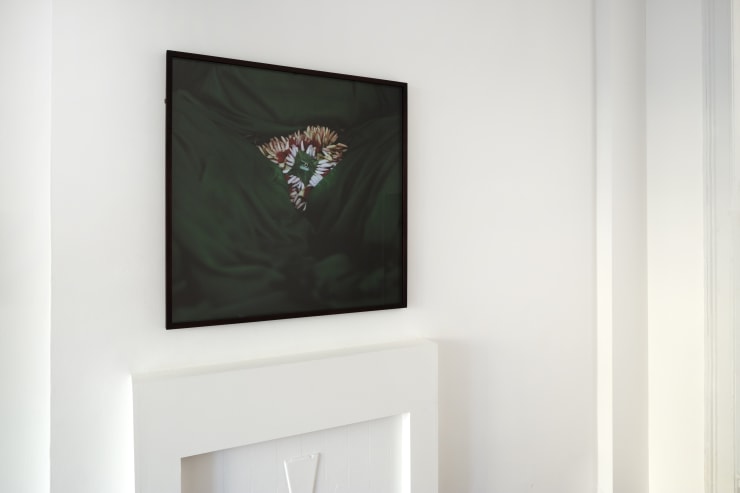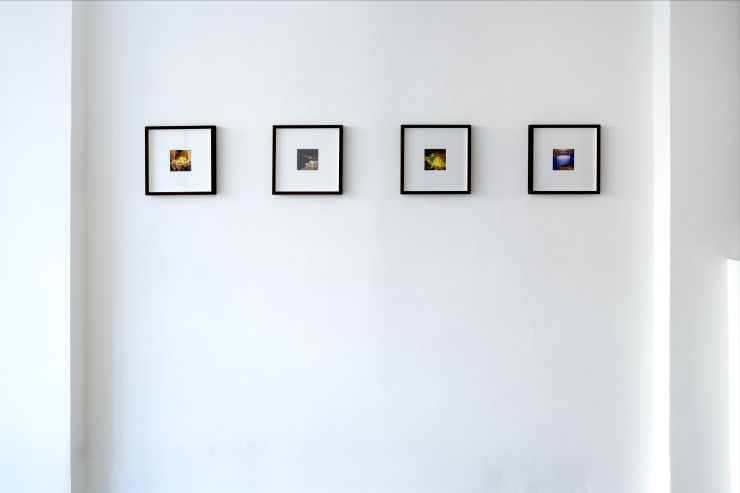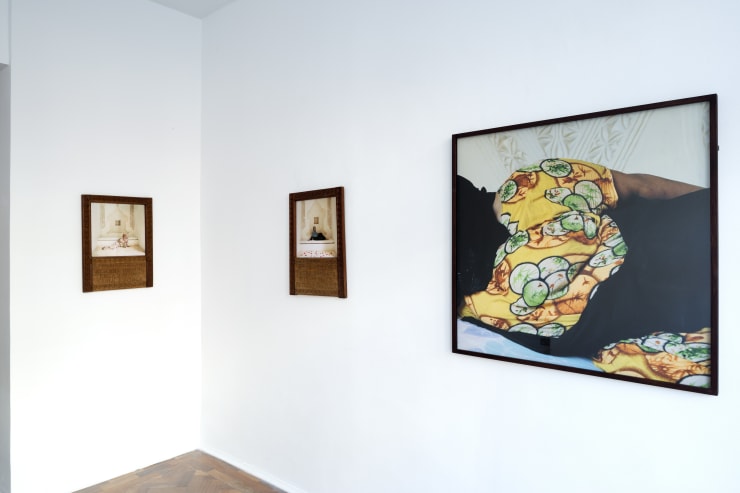Utendi
Past exhibition
Works
Installation Views
Press release
Utendi is the artist’s first project in Africa. The title of the exhibition refers to the Swahili writer Fumo Liyongo’s ancient erotic poem: Utendi wa Mwana Manga (In Praise of the Arab Woman). Liyongo’s prose was first transcribed into the Arabic script, quite possibly during the time of Omani governance of parts of the East African coast during the 18th century. It prompted Ali to travel to Lamu, an island on the northern coast of Kenya, where the Swahili culture — born from multiple exchanges between mainly the Arab, Persian and East African worlds — is uniquely preserved and where she began exploring the representation and the power of the feminine presence in that ancient civilisation.
Ali’s journey to Lamu began with the intention of gaining a better understanding of the Omani/Swahili connection. Poetry and in particular this poem was the catalysing element that produced a deep connection between the artist and the local women, and with it, access to intimate notions that are still very much a guarded territory for this ancient culture. In developing this close relationship, the artist found herself increasingly contemplating dormant aspects of her own culture which brought her into a forgotten, yet hauntingly familiar territory. This sensitivity to her new environment urged her to better understand the source of certain shared traditions, rites and rituals, and prompted an even deeper contemplation about herself, her identity and her origins.
The exhibition alternates selections from three series of works. Framed prints, a meter squared in size, portray sensual subterranean desire as a tableau of truncated, abstracted and adorned parts of the body. Young women are presented and juxtaposed next to verses of the poem that are carved into bespoke wooden frames made in Lamu by local artisans. These frames incorporate traditional motifs commonly found on old doors, underlining the correspondence between the representation of the feminine and the architecture and design that permeate the island. Small prints chronicle symbolic representations of the erotic, used in the poem and still very much present in contemporary Swahili language and psyche.
The photographic works presented by Eman Ali have both a strong and eerie seduction; however, they are far from “the collective day-dream of the Orient” that informs Edward Said's critique of Orientalism. Interrogating issues of the erotic etiquette, protocol and simulacrum in Lamu, the artist reveals what Bahraini curator and writer Yasmin Sharabi describes as: “the symbiotic relationship that exists between the elements, the feminine and the internal / external space" and "the power of the feminine beauty and strength”.
